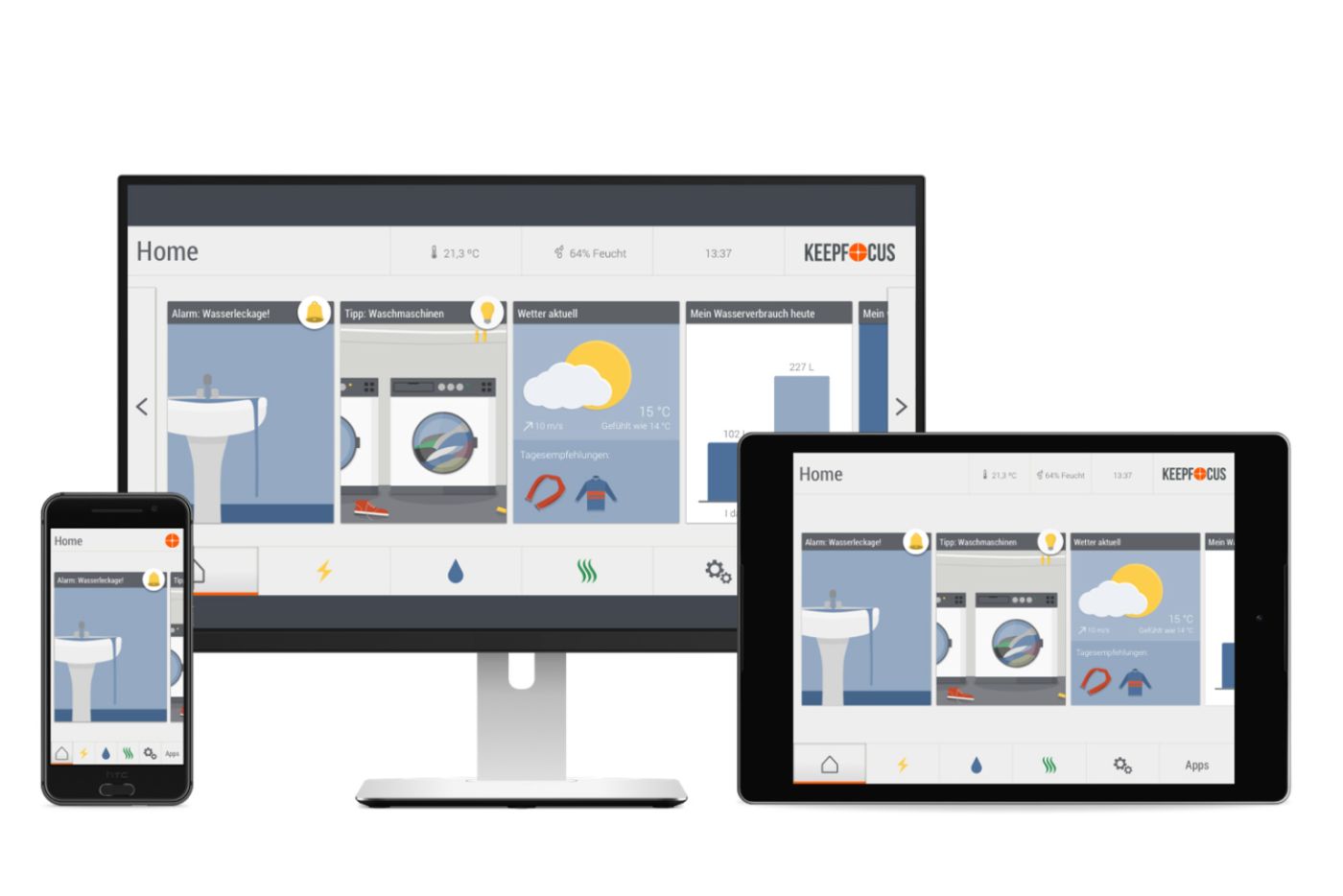News

A development by noventic shows that climate protection can be very simple: The 'Cards' app playfully involves tenants in actively saving energy on a daily basis and, as a side effect, helps to protect the building fabric. The app was awarded the Innovation Prize by the German Property Federation (ZIA) at the Real Estate Industry Day on 13 June 2018.
Everyone is talking about the value-added services that will result from digitalisation - with 'Cards', the noventic group brings to the housing industry an innovation that actively involves tenants in achieving climate targets - while protecting the building fabric and simplifying communication between landlord and tenant. With the help of the digital metering infrastructures required by the Energy Transition Digitalisation Act - i.e. the roll-out of smart meters - and innovations such as 'Cards', the housing industry and tenants have the opportunity to tackle the rebound effect. In other words, to actually secure the planned energy savings through energy modernisation measures on the consumption side in everyday life.
So what exactly can the app do?
The primary aim of the 'Cards' application is to help tenants recognise their personal consumption patterns within their own four walls. With this new level of transparency, 'Cards' shows ways to be more conscious of one's own preferences and ultimately more energy-efficient - while also ensuring a healthy indoor environment and long-term protection of the building fabric.
The app is based on energy consumption data, which by law must be collected for all residential units by property managers or owners. With the help of smart meters, this data can also be retrieved and provided remotely at much shorter intervals, at the request of tenants and property owners.
Previously, the annual heating bill sent to tenants in the spring was of little use in helping them to change their own energy consumption. With the help of smart applications such as 'cards', the annual bill is supplemented by much shorter information intervals. Only this new transparency enables an immediate, personalised response in everyday behaviour.
And how does the app work?
'Cards' uses your own electricity, water and heat consumption data to show you how you use energy and compares this to your personal goals or other targets you've set, such as cost or CO2 reduction. The app is really easy to use, just like a fitness app. You can see how much energy you're using in the short term and look for goals and comparisons, which makes you think about and question your priorities and goals in your everyday consumption. The system also includes illustrated tips for saving energy and resources, as well as local information like appointment schedules, weather reports, and public transportation schedules.
Curiosity among tenants - foresight for housing companies.
Motivation and loyalty strategies were developed together with experts from the housing industry, UX specialists and sales psychologists in order to get tenants excited about the app comprehensively and sustainably. Depending on the requirements profile of the housing company, ‘Cards’ also offers further added value: for example, building consumption data can also be evaluated in such a way that warnings of leaks or an increased risk of mould are issued if certain threshold values are exceeded. Mould is a key issue for the protection of the building fabric and health in energy-efficient renovated buildings. Housing companies can also communicate directly with their tenants via ‘cards’: They can provide information or appointments as a new card - to individuals, specific groups of people or even to entire properties.
Investments in intelligent infrastructures are already paying off today.
Cards' is an example of the noventic group's self-imposed requirement to add new value to existing infrastructures - based on metering points, which are largely mandated by law. The roll-out of smart meters, as described in the 'Gesetz zur Digitalisierung der Energiewende' and the amended 'Messstellebetriebsgesetz', will not only provide properties in Germany with an intelligent metering infrastructure by 2020, but also a secure and highly available hub between buildings and the Internet of Things in the form of the smart meter gateway. However, the new infrastructures also present housing companies with new challenges: After another two years, they will be obliged to provide users with monthly consumption information. Against this backdrop, those who invest in digital structures now when modernising their metering infrastructure will be ahead of the game, as digital services such as 'cards' help with ongoing communication with tenants. This combination gives housing companies and tenants the opportunity to create new benefits with existing structures, for example in metering sensor technology.
Digitalisation is changing the way we live: Another important building block on this path is the rollout of smart meters. Digital, intelligent infrastructures that can do far more than what is required by law. The KALO with its bundled offers - the merging of smart metering with sub-metering via the smart meter gateway - is having a further impact on the German property market. What will follow? The possibilities for new innovations are great, but concrete, technology-open - and therefore future-proof - solutions are already available.
.
Congratulations to all award-winning innovators in the property industry.
.
Also of interest:.
Andreas Göppel, Managing Director of the noventic group, was awarded the "Köpfe der Immobilienwirtschaft" prize by the trade magazine Immobilienwirtschaft on 13 June 2018.